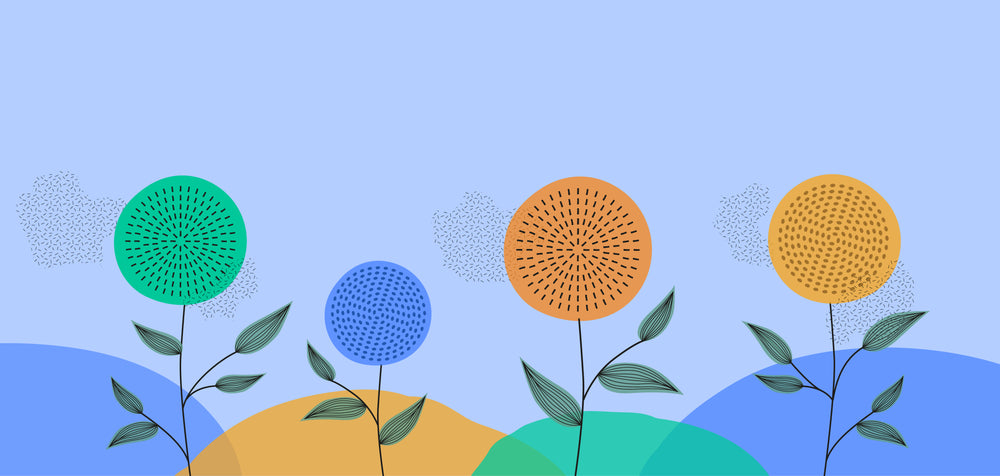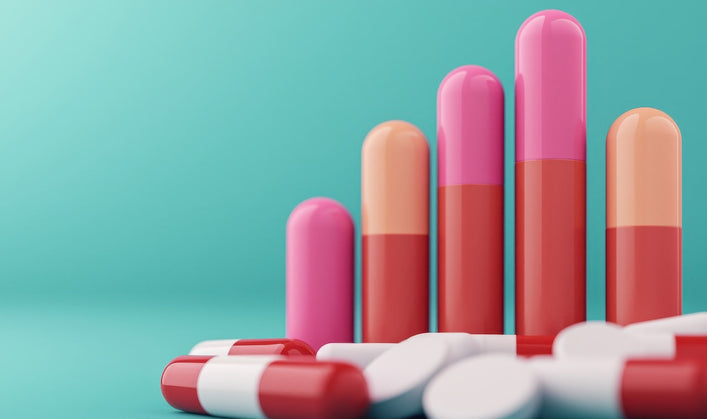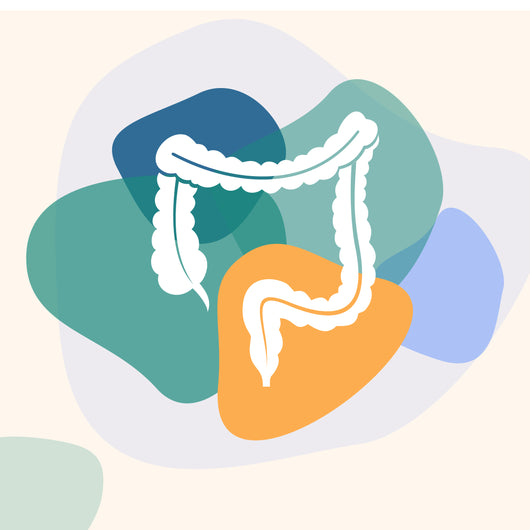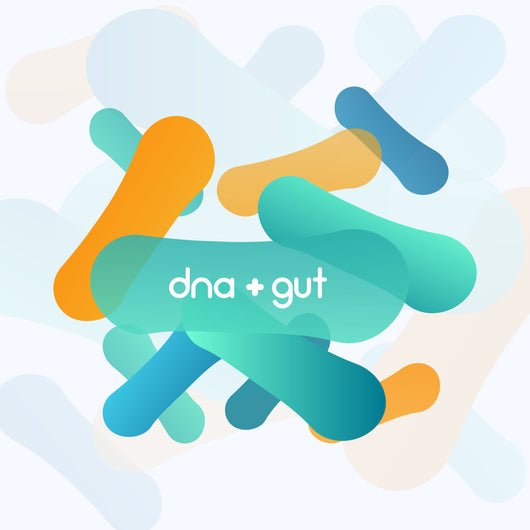What do you think of when you hear ‘histamine’? Runny nose, watery eyes, hives all over?? It’s almost become synonymous to allergy - which it isn't, by any means!
Histamine is actually a protective chemical that plays an important role in keeping triggers (or allergens) out of our system. Take pollen, for instance - if it is a trigger, and enters the body or comes in contact with your skin, histamine sends signals to the brain, and even the stomach to expel it. Sneeze, cough, or itch, whatever it takes to get the job done. Not just that, it even controls the sleep-wake cycle. Aside from these functions, it also
- Stimulates stomach acid secretion to aid digestion
- Dilates blood vessels (to increase permeability and lower blood pressure)
- Controls muscle contractions within the lungs, uterus, and stomach
So where does all this histamine come from?
Histamine - a short origin story
Histamine is a chemical that our bodies naturally produce, and is present in nearly all tissues in the body. It is even present in the foods and liquids we consume - at varying levels. The amount of histamine in foods increases as the food ‘ages’ - so fermented foods, aged cheeses, all contain high levels of histamine. Some strains of bacteria in our bodies produce it too.
What's Going On With The Histamine In My Body?
This histamine that gets produced in our bodies, and is ingested from food needs to be released from the storage cells (Mast Cells and basophils) to perform its signalling function, and then “degraded”. In simpler terms, broken down. There are of course instances when this important process of degradation doesn’t occur adequately, or if we ingest foods with high levels of histamine. The result is higher than normal histamine levels that can cause a chain reaction of uncomfortable side effects.
This build up of histamine is what we commonly call histamine intolerance.
The enzyme diamine oxidase (DAO) helps synthesize histamine levels in our bodies, which, surprise surprise, is produced in the intestinal lining and kidneys. What’s not a surprise is, if you have a leaky gut, which means the intestinal lining is affected, there’s a lack of DAO which means histamine isn’t broken down and builds up.
Histamine Imbalance Symptoms
If you have an intolerance to certain kinds of food, your immune system is triggered by your digestive system, which causes histamine reaction. When you add your body's natural histamines to external factors like food with a high histamine content, you will begin building up a store of histamines within the body. Continuously adding histamines into your body can result in side effects associated with this type of overload, such as:
- Headaches/migraines, anxiety
- Fatigue
- Nasal congestion/sinus issues or even difficulty breathing
- Hives
- Digestive issues - cramps, bloat, nausea
- Hypertension, Vertigo or dizziness
- Difficulty regulating body temperature
- Abnormal menstrual cycle
Maybe you think you are constantly tired because you don't get enough sleep. Or the sniffles you have are just from a bit of summer cold. While this could be a reason for these symptoms, another culprit could also be histamine imbalance.
Does This Mean I Can't Eat Certain Foods?
From the banana you snacked on this afternoon to the cheeseburger you had with your friends last night - histamine is present in almost everything we ingest.
Some foods are higher in histamine than others and can trigger or disrupt our gut bacteria. Also, if you eat food your body is allergic to - your gut will react and cause a chain reaction of unpleasant symptoms. Some foods that are high in histamine include:
- Aged cheeses
- Cured foods (canned fish/meats; deli meats)
- Fermented products (miso, yogurt, soy sauce, sauerkraut, kimchi)
- Spinach
- Tomato
- Eggplant
- Avocado
- Banana
- Champagne, wine, and beer
- Yeast
- Leftovers
How Does My Gut Trigger My Allergies?
We now know that the enzymes (DAO) responsible for synthesizing histamine are present in the GI tract. Certain kinds of bacteria produce histamine, whereas some produce DAO. With a healthy gut, the body works like a well-oiled machine, and histamine levels are in check. Therefore it is paramount that our diets help maintain this delicate balance of good and bad bacteria in the GI tract. Studies have hinted that
Modern dietary practices contribute to gut dysbiosis by disturbing the body's natural bacterial composition.
To get your body back to that natural state, you need to rebalance your gut and reset your body. If you are constantly feeling the symptoms described above, you may very well have an allergic reaction from a histamine imbalance. This imbalance could be triggered by allergies from food or from your environment. To help get to the root of your problem, Digbi health uses a
gene allergy report to analyze the combination of your genes and gut microbiome.
Once you understand the unique makeup of your gut, there are steps you can take to normalize your gut health. The first step is to follow a Digbi Health customized diet plan, which will nourish your body with the right nutrient-dense meals and encourage the proliferation of beneficial gut bacteria. The second is to incorporate a blend of physical fitness for the body and meditation for the mind. Using the Digbi Control program, your physical requirements are specifically tailored to your genetic needs and work seamlessly with your custom diet that nourishes your gut biome.
How Digbi Can Help
Understanding your allergies, histamine, and gut biome is the foundation to healing your body. At Digbi Health, we have programs designed to educate and support people with histamine intolerance. Our programs provide significant digestive health results with gut health problems associated with inflammation, obesity, and more. The members within our program who have achieved their 5% weight loss milestone report significant reduction or reversal in their chronic skin issues and gut biome relief. To find out more about our health programs, contact us today!





